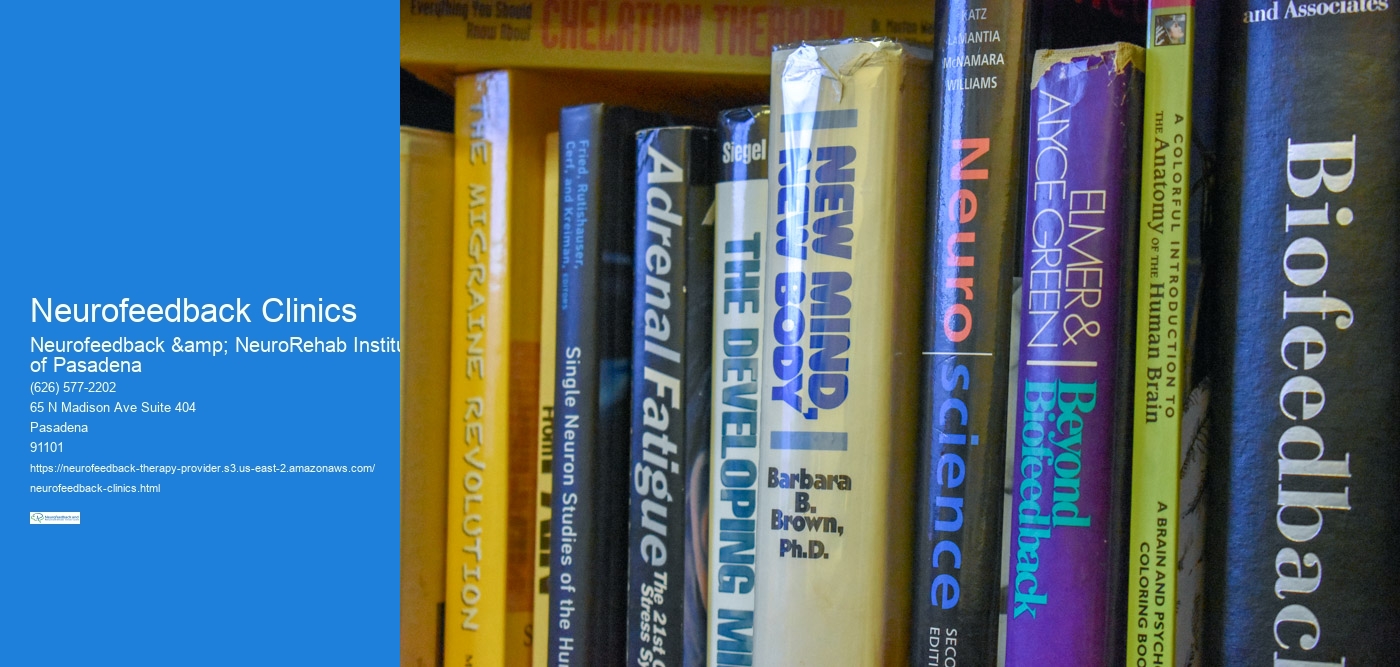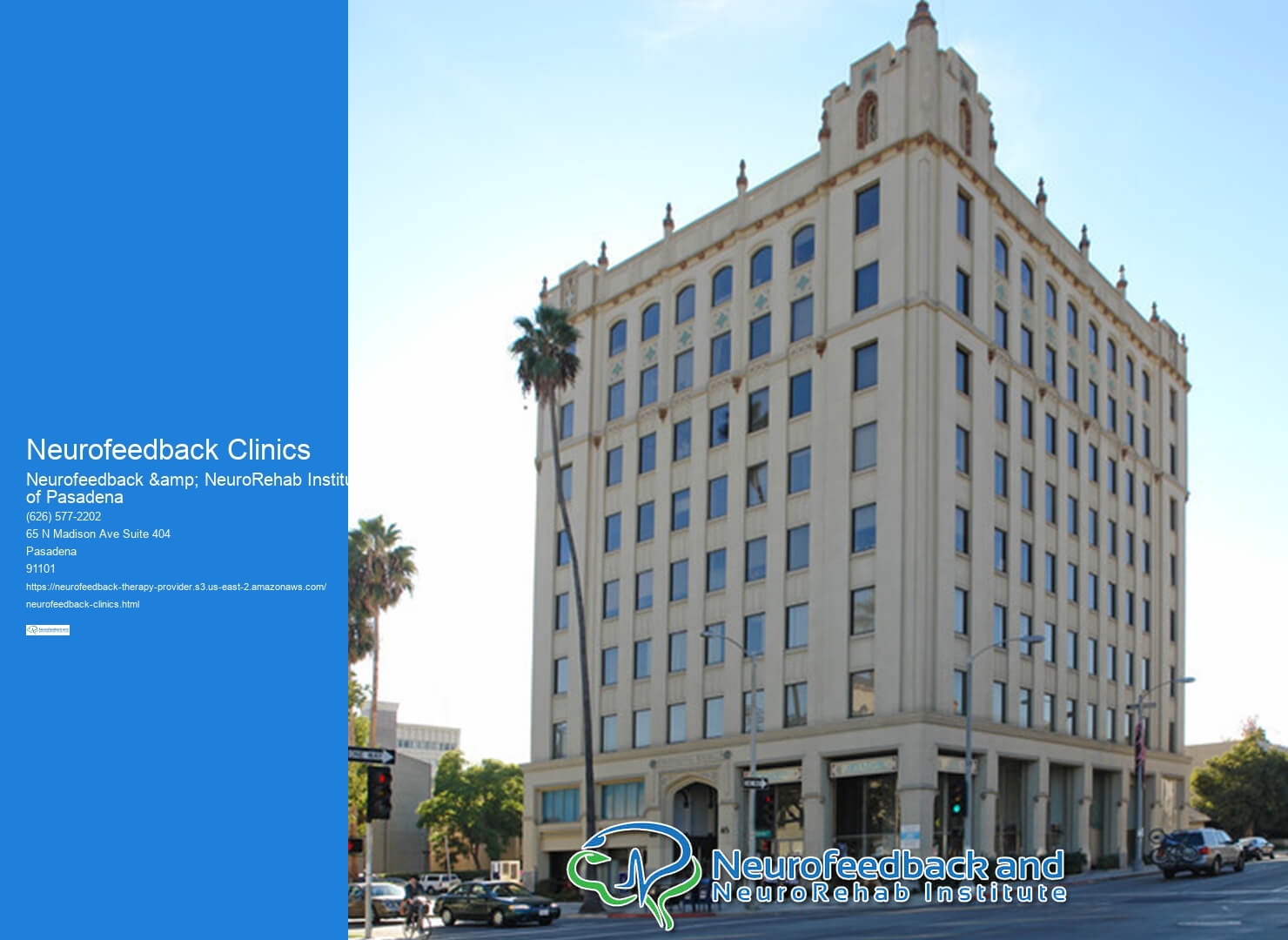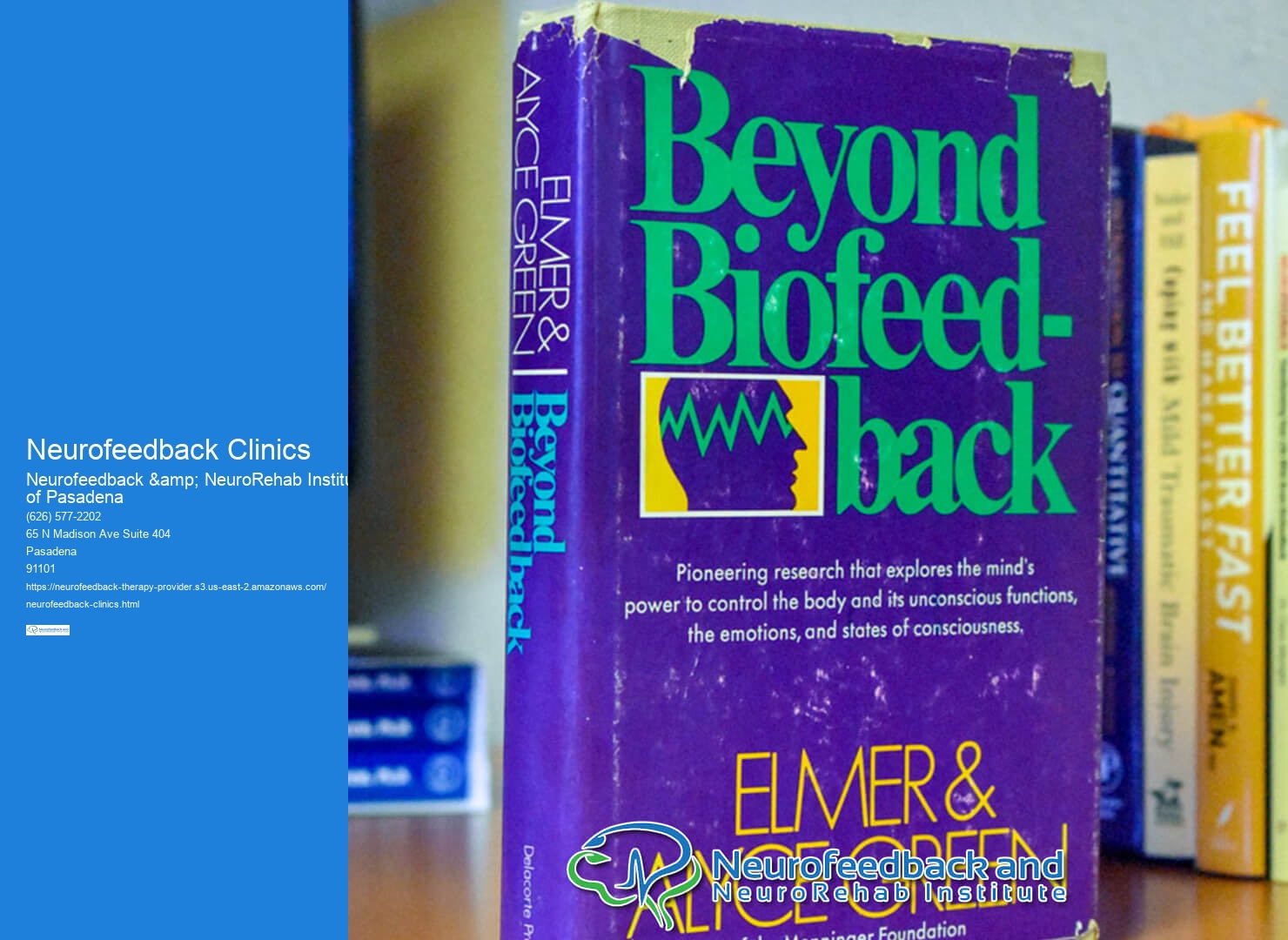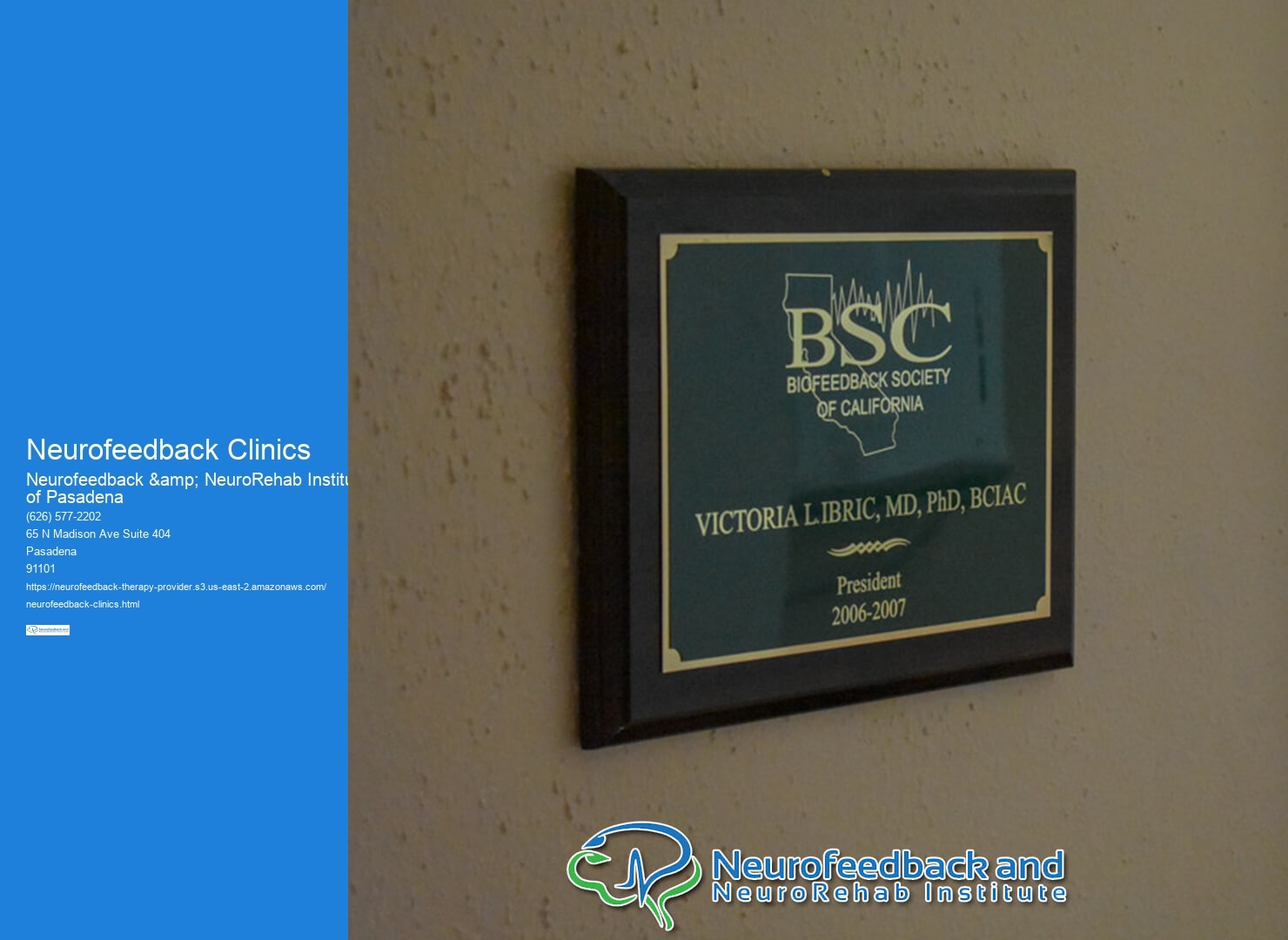

Neurofeedback therapy targets and addresses symptoms of ADHD in children by focusing on regulating specific brainwave patterns associated with attention and impulse control. This therapy aims to train the brain to produce more balanced and stable patterns, such as increasing beta waves in the prefrontal cortex, which are linked to improved focus and cognitive control. By providing real-time feedback to the child through visual or auditory cues, neurofeedback helps them learn to self-regulate their brain activity, leading to reduced ADHD symptoms and improved attention and behavioral control.
In individuals with anxiety disorders, neurofeedback therapy aims to regulate specific brainwave patterns, such as reducing excessive beta waves in the frontal lobes and increasing alpha and theta waves associated with relaxation and calmness. By training the brain to shift towards these more balanced patterns, neurofeedback can help reduce anxiety symptoms and improve emotional regulation, leading to a greater sense of calm and reduced reactivity to stressors.
Neurofeedback therapy can be tailored to address specific symptoms of PTSD, such as hypervigilance and intrusive thoughts, by targeting the regulation of brainwave patterns associated with these symptoms. Neurofeedback Practitioner For example, increasing alpha and theta waves in the brain regions related to emotional processing and reducing excessive beta waves in the areas linked to hyperarousal can help alleviate these symptoms. By training the brain to achieve a more balanced and adaptive state, neurofeedback can contribute to reducing the impact of PTSD symptoms.

In individuals with insomnia, neurofeedback therapy helps regulate their sleep patterns and improve sleep quality by targeting specific brainwave patterns associated with sleep disturbances. Biofeedback Training Center By training the brain to produce more synchronized and balanced patterns, such as increasing slow-wave delta and theta waves while reducing excessive beta activity, neurofeedback can promote relaxation and facilitate the transition into restful sleep, leading to improved sleep quality and duration.
Neurofeedback therapy uses specific protocols to address symptoms of depression and improve mood regulation by targeting brainwave patterns associated with emotional processing and regulation. Neurofeedback Treatment Center For instance, increasing alpha and theta waves in the frontal regions while reducing excessive beta activity can help alleviate depressive symptoms and promote a more balanced emotional state. By training the brain to achieve these patterns, neurofeedback can contribute to improving mood regulation and reducing the impact of depression.

Neurofeedback therapy targets and improves executive functioning in individuals with traumatic brain injuries by focusing on regulating specific brainwave patterns associated with cognitive control and attention. For example, increasing beta waves in the prefrontal cortex and reducing excessive theta activity can help enhance executive functioning and attentional control. Neurofeedback Trainer By training the brain to achieve more balanced patterns, neurofeedback can contribute to improving cognitive function and executive skills in individuals with traumatic brain injuries.
Specific neurofeedback techniques are used to address symptoms of autism spectrum disorders and improve social communication skills by targeting brainwave patterns associated with social cognition and emotional processing. Neurofeedback Coach For instance, increasing alpha and beta waves in the areas related to social perception and reducing excessive theta activity can help enhance social communication skills. By training the brain to achieve more balanced patterns, neurofeedback can contribute to improving social cognition and communication abilities in individuals with autism spectrum disorders.

Neurofeedback, a form of biofeedback that focuses on brainwave activity, has shown promise in aiding addiction recovery. By targeting specific neural pathways and promoting self-regulation, neurofeedback can help individuals manage cravings, reduce impulsivity, and improve emotional regulation, all of which are crucial aspects of addiction recovery. Through operant conditioning, neurofeedback aims to retrain the brain's response to triggers and stressors, ultimately promoting healthier patterns of thought and behavior. This non-invasive, drug-free approach complements traditional addiction treatment methods and may offer individuals a valuable tool in their journey towards sustained recovery.
Yes, there are specialized neurofeedback programs designed specifically for athletes to enhance their performance. These programs often focus on improving cognitive functions such as attention, focus, decision-making, and emotional regulation, all of which are crucial for athletic success. Additionally, they may incorporate techniques to help athletes manage stress, anxiety, and performance-related pressure. By targeting specific brainwave patterns and training the brain to operate more efficiently, these specialized neurofeedback programs aim to optimize an athlete's mental and emotional state, leading to improved overall performance and resilience. Furthermore, some programs may also integrate biofeedback and neurocognitive assessments to provide a comprehensive understanding of an athlete's brain-body performance and tailor the neurofeedback training accordingly.
Alpha-Theta Neurofeedback is a form of neurofeedback therapy that aims to induce deep relaxation by targeting specific brainwave frequencies. By providing real-time feedback on the brain's electrical activity, this therapy helps individuals learn to self-regulate their brainwave patterns, particularly in the alpha and theta frequency ranges. Through this process, individuals can achieve a state of deep relaxation, calmness, and enhanced introspection. The neurofeedback sessions involve the use of specialized equipment to monitor and train the brainwave activity, promoting a sense of tranquility and mental clarity. This approach leverages the brain's natural ability to adapt and optimize its functioning, leading to improved relaxation and stress reduction.
Yes, there are neurofeedback programs specifically designed to enhance peak performance in musicians. These programs utilize neurofeedback techniques to help musicians improve their focus, concentration, and overall cognitive function, leading to enhanced musical performance. By targeting specific brainwave patterns and training the brain to achieve optimal states for creativity, concentration, and relaxation, neurofeedback can help musicians reach their peak potential. Additionally, these programs may also address performance anxiety and stress management, further supporting musicians in achieving their best performances. Overall, neurofeedback programs for musicians aim to optimize brain function and enhance musical abilities through targeted training and feedback.
Neurofeedback practitioners commonly pursue certifications such as the Board Certification in Neurofeedback (BCN) offered by the Biofeedback Certification International Alliance (BCIA), which demonstrates expertise in the field. Additionally, the Neurofeedback Certification Board (NCB) provides the Certified Neurofeedback Specialist (CNS) credential, signifying proficiency in applying neurofeedback techniques. Some practitioners may also seek training and certification through organizations like the International Society for Neurofeedback and Research (ISNR) or the Association for Applied Psychophysiology and Biofeedback (AAPB), which offer specialized programs in neurofeedback and related modalities. These certifications validate the practitioner's knowledge and skills in utilizing neurofeedback to address various neurological and psychological conditions.
Yes, there are neurofeedback programs specifically designed to help manage tics, such as those associated with Tourette syndrome. Neurofeedback, also known as EEG biofeedback, is a non-invasive technique that uses real-time monitoring of brainwave activity to help individuals learn to self-regulate their brain function. These programs typically involve training sessions where individuals receive feedback on their brainwave patterns and learn to modify them through techniques such as relaxation, visualization, and cognitive strategies. Neurofeedback has shown promise in helping individuals with tic disorders to reduce the frequency and severity of their tics, improve self-control, and enhance overall quality of life. It is often used as part of a comprehensive treatment approach that may also include behavioral therapy, medication, and other interventions tailored to the individual's specific needs.
Yes, there are several neurofeedback programs specifically designed for veterans with traumatic brain injury (TBI). These programs utilize advanced neurofeedback techniques to address the unique cognitive and emotional challenges faced by veterans with TBI. Many of these programs are tailored to address specific symptoms such as memory loss, attention deficits, and emotional regulation. Additionally, these programs often incorporate a multidisciplinary approach, integrating neurofeedback with other therapeutic modalities to provide comprehensive care for veterans with TBI. These programs are often available through specialized clinics and rehabilitation centers that focus on serving the needs of veterans and individuals with brain injuries.